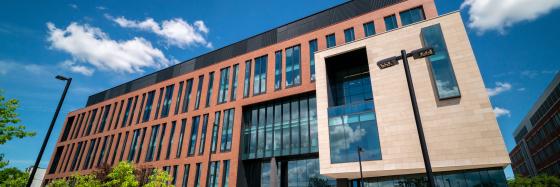
Centers & Institutes The following research centers and institutes are under the organizational structure of the Office of the Vice President for Research. They are non-degree granting and multidisciplinary in scope.
Other Research Centers & Institutes
- Agricultural Experiment Station
- Advanced Science and Technology Commercialization Center (ASTeCC)
- African American and Africana Studies (AAAS)
- Appalachian Center & Appalachian Studies
- Bioelectronics and Nanomedicine Research Center (BNRC)
- Barnstable Brown Diabetes & Obesity Research Center (BBDOC)
- Center for Aluminum Technology (CAT)
- Center for Appalachian Research in Environmental Sciences (UK-CARES)
- Center for Business and Economic Research (CBER)
- Center for Cancer and Metabolism (COBRE)
- Center for Environmental and Systems Biochemistry (CESB)
- Center for Interprofessional and Community Health Education (CICHE)
- Center for Microelectrode Technology (CenMeT)
- Center for Muscle Biology
- Center for Nanoscale Science and Engineering (CeNSE)
- Center for Obesity and Cardiovascular Disease (COCVD) COBRE
- Center for Oral Health Research
- Center for Pharmaceutical Research and Innovation (CPRI) COBRE
- Center for Innovation in Population Health
- Center for Poverty Research (UKCPR)
- Center for Rural Development
- Center of Advanced Translational Stroke Science (CATSS)
- Center of Excellence in Rural Health
- Center on Drug and Alcohol Research (CDAR)
- Center on Trauma and Children (CTAC)
- CNS-Met COBRE
- COBRE in Translational Chemical Biology
- Blueprint Kentucky (formerly CEDIK)
- Donald T. Frazier Science Outreach Center
- Gill Heart & Vascular Institute
- Gluck Equine Research Center
- Institute for Biomedical Informatics
- Institute for Pharmaceutical Outcomes and Policy (IPOP)
- Institute for Sustainable Manufacturing
- Institute for the Study of Free Enterprise
- Institute of Research for Technology Development (IR4TD)
- John Jacob Niles Center for American Music
- Kentucky Center for School Safety
- Kentucky Center for Smoke-free Policy
- Kentucky Climate Consortium
- Kentucky Injury Prevention and Research Center (KIPRC)
- Kentucky Neuroscience Institute (KNI)
- Kentucky Research Data Center
- Kentucky Tobacco Research and Development Center (KTRDC)
- Kentucky Transportation Center
- LINKS Center for Social Network Analysis
- Martin School of Public Policy and Administration
- Power and Energy Institute of Kentucky (PEIK)
- Research Center on Healthy Metabolism
- Saha Cardiovascular Research Center
- Sanders-Brown Center on Aging
- Spinal Cord & Brain Injury Research Center
- Sports Medicine Research Institute (SMRI)
- Support of Research Excellence (SuRE) Resource Center
- Training Resource Center (Social Work)
- Ultrasound Core (Saha Cardiovascular Research Center)
- Veterinary Diagnostic Laboratory (VDL)
- Vibro-Acoustics Consortium
- Von Allmen Center for Entrepreneurship (VACE)









